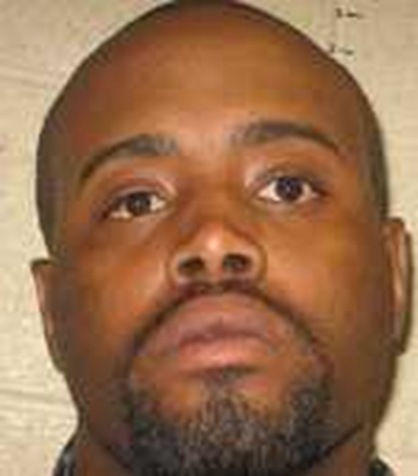Cleveland
February 5, 2014

Jeremiah Jackson was sentenced to death for his role in a three-county crime spree in June 2009 that included killing a laundromat worker on Cleveland’s West Side. Tuesday his lawyers will asks the Ohio Supreme Court to overturn his conviction.
The case is one of several that the Supreme Court plans to hear this week. No decision is expected for some time, though. Weeks, and even months, can pass between when cases are argued before the Ohio Supreme Court and a decision is announced.
Jackson was sentenced to die for killing Tracy Pickryl, who was working the overnight shift at a 24-hour laundry on West 25th Street in Cleveland.
In June 2009, Jackson burst into the laundry with a gun. He took $50 and Pickryl’s necklace. When he tried to grab her bracelet, police said, she jerked back and he shot her in the head.
The 38-year-old Cleveland woman died at the laundry, where she had worked about a year.
Jackson later acknowledge he’d shot Pickryl, apologizing at his sentencing to her family for what he described as a “cold-blooded accident.”
A three judge panel sentenced him to death. He was also convicted of dozens of other charges, including attempted murder, aggravated robbery, kidnapping and felonious assault.
Jackson’s lawyers, in their brief, cite 11 legal and procedural errors for the court to consider.

Among their arguments is that Jackson’s limited intellectual capacity may mean the state is barred from executing him. The U.S. Supreme Court has ruled that executing people who are mentally retarded constitutes cruel and unusual punishment.
They also argue that he did not freely grant a waiver to a jury trial, and note that he complained that he had a “banging head” and difficulty focusing when the waiver was being discussed.
And they question whether Cuyahoga County had the jurisdictional authority to indict Jackson for offenses that took place in Lorain and Erie counties during his crime spree.
Lawyers from the Cuyahoga County prosecutor’s office will argue on behalf of the state.
They have said the court acted properly in determining Jackson’s mental capacity. Prosecutors assert that the trial court fulfilled its duty to make sure Jackson received a fair trial and was spared from a death sentence if warranted.
They note that Jackson “denied being threatened, promised or encouraged to waive his right to a jury trial or promised any side benefit or anything extra to get him to sign the waiver when he did not want to.” They claim the court did a thorough inquiry to determine whether Jackson knowingly and voluntarily waived his right to a jury trial. The transcript of the interview, they cite, went on for 22 pages.
And the crimes that occurred outside Cuyahoga County were properly tried, they say, because they were part of one course of criminal conduct, allowing a trial in one jurisdiction.
Northeast Ohio Media Group will periodically look at cases before the Supreme Court. All cases can be viewed through the online docket on the Supreme Court’s website.
